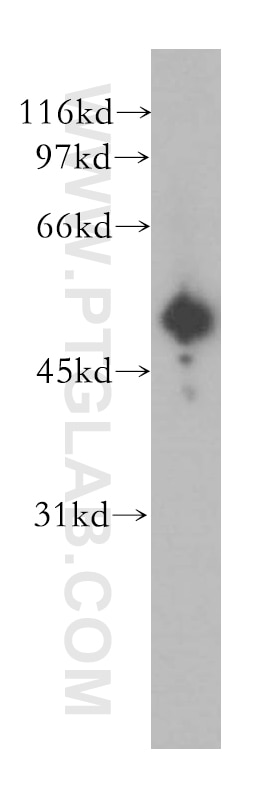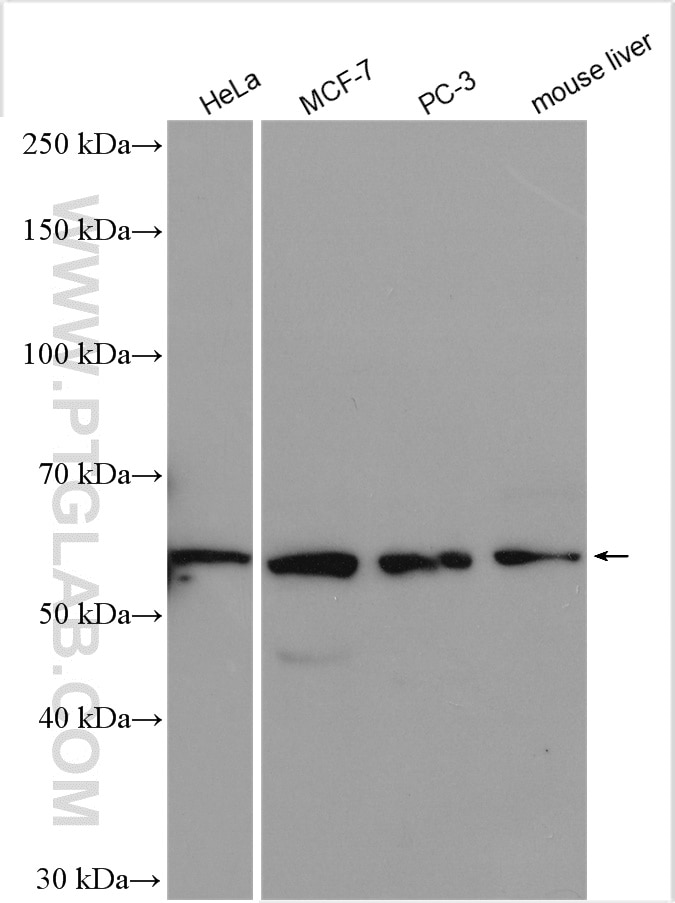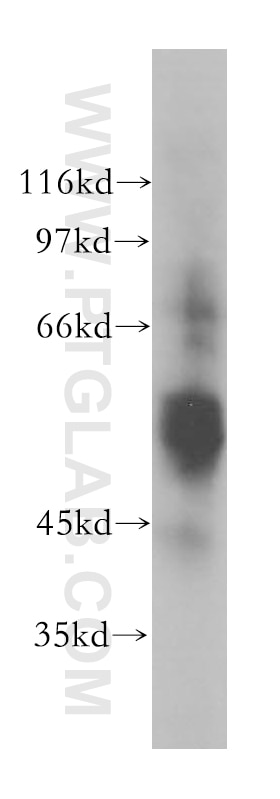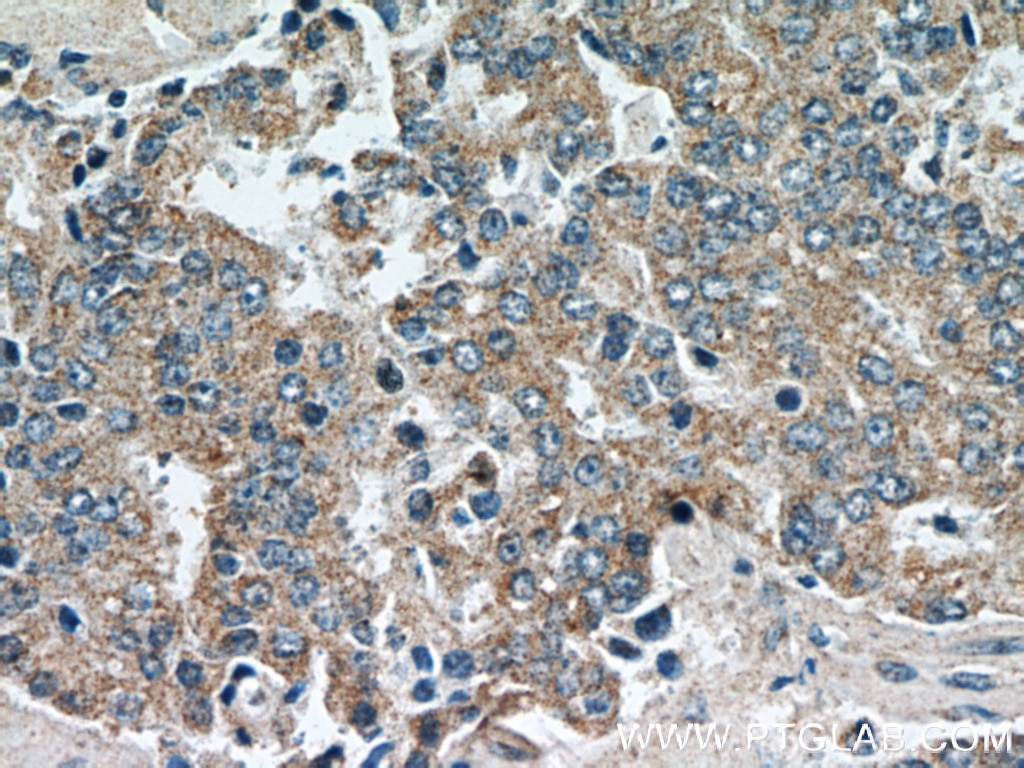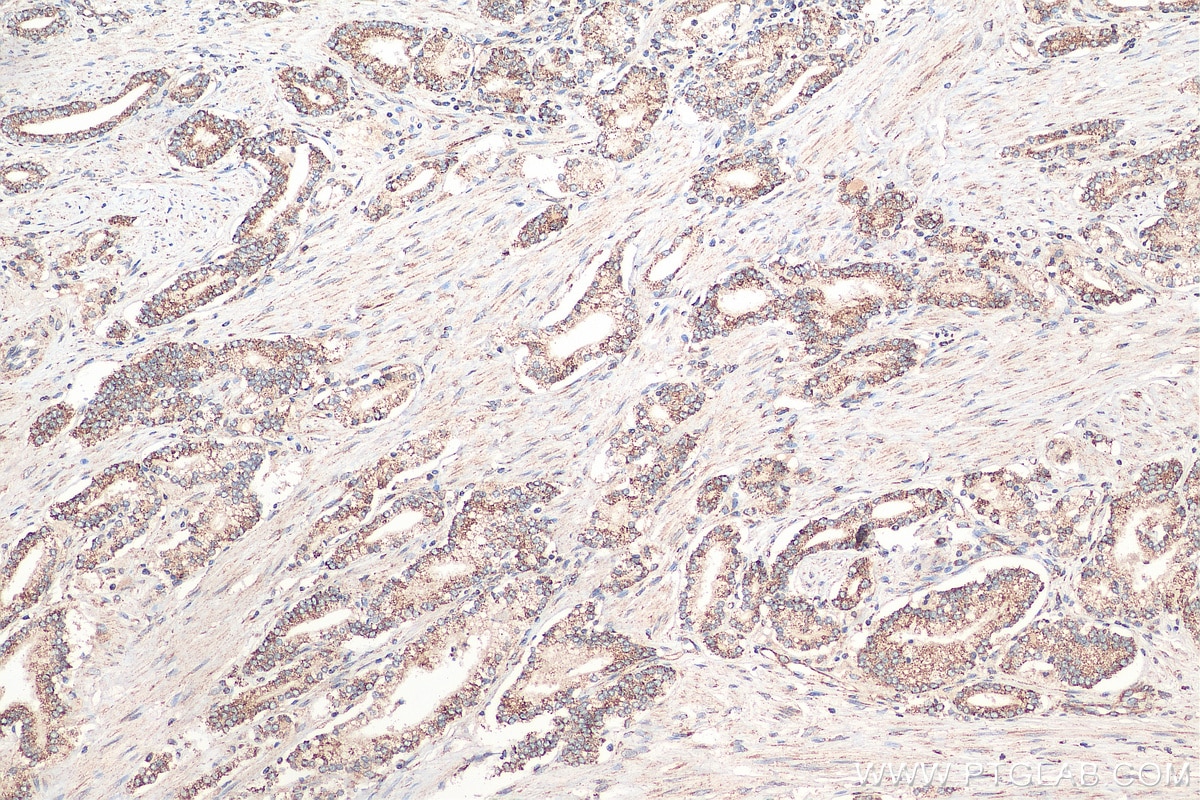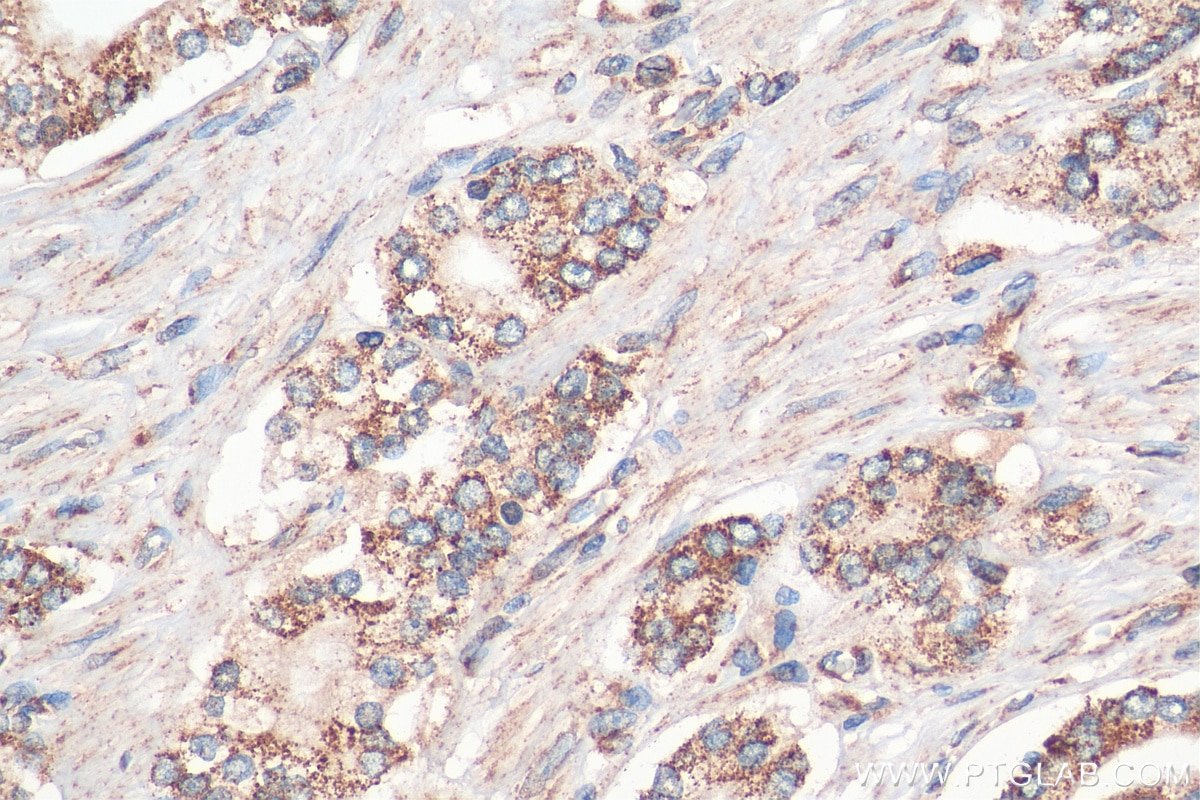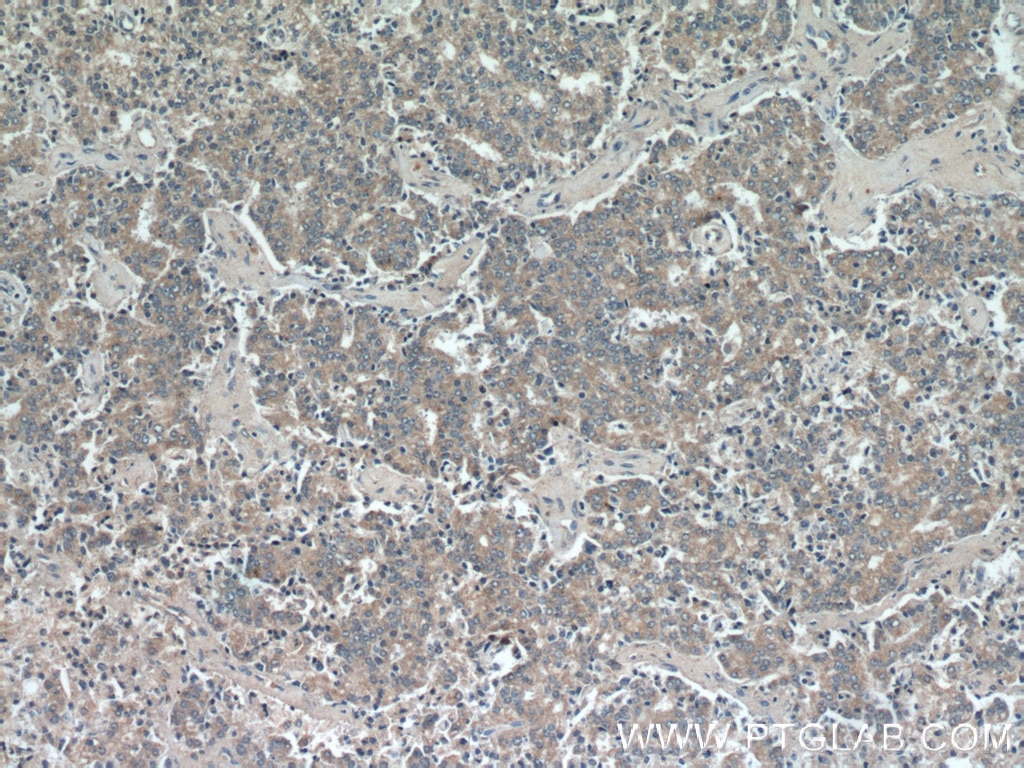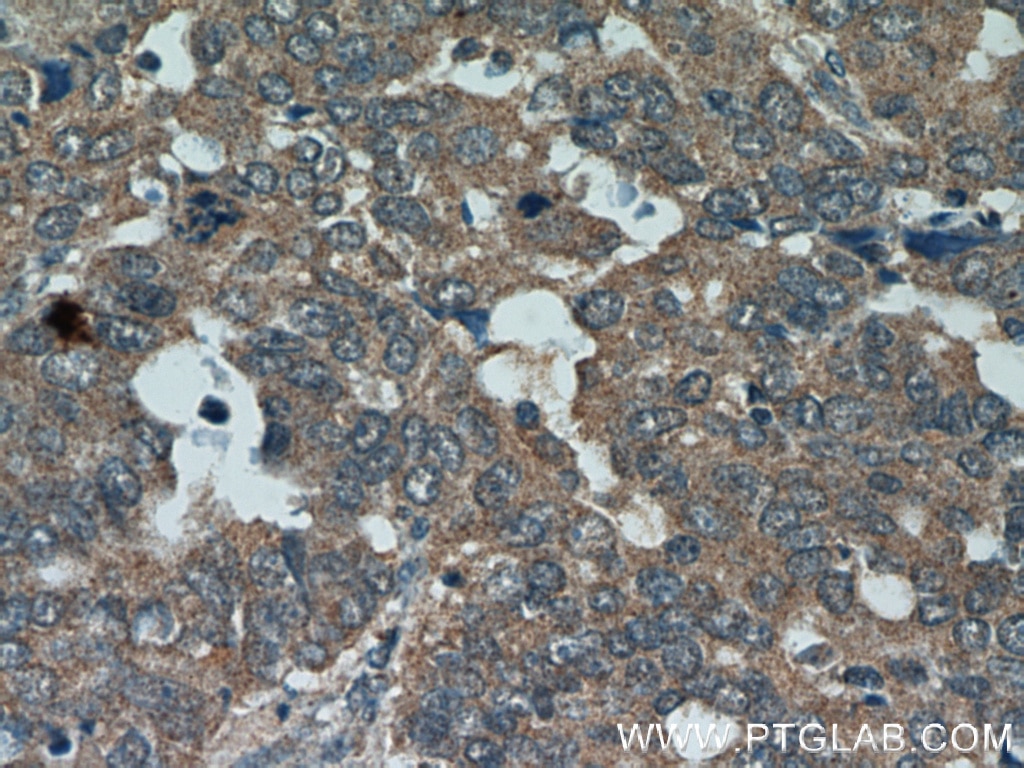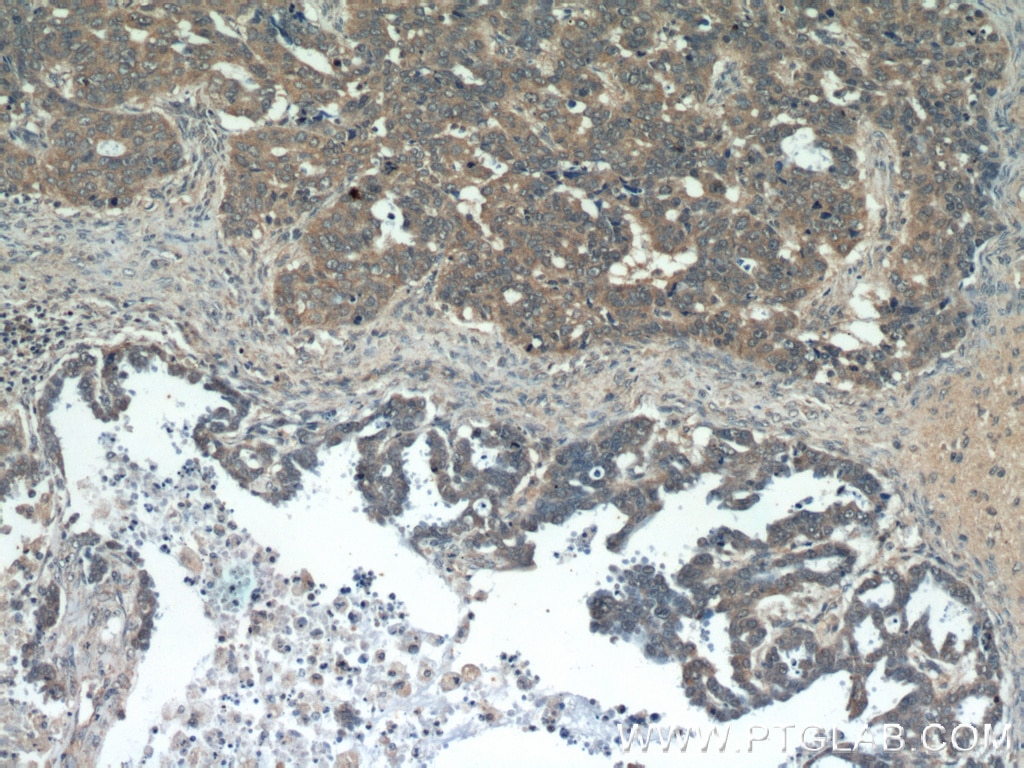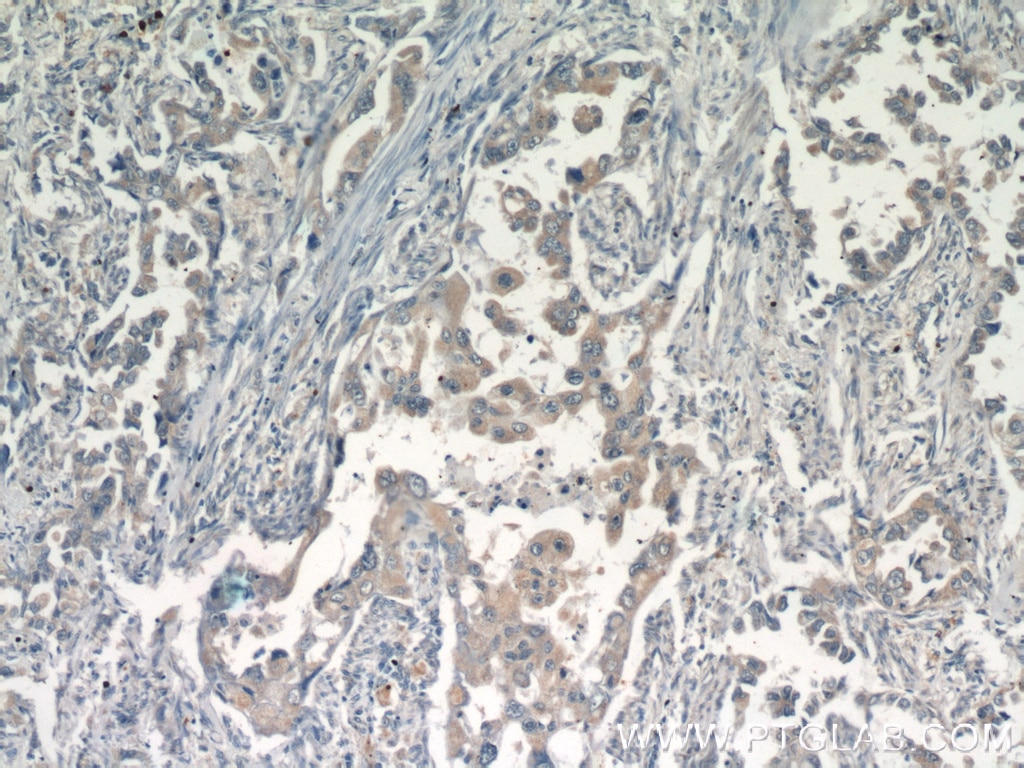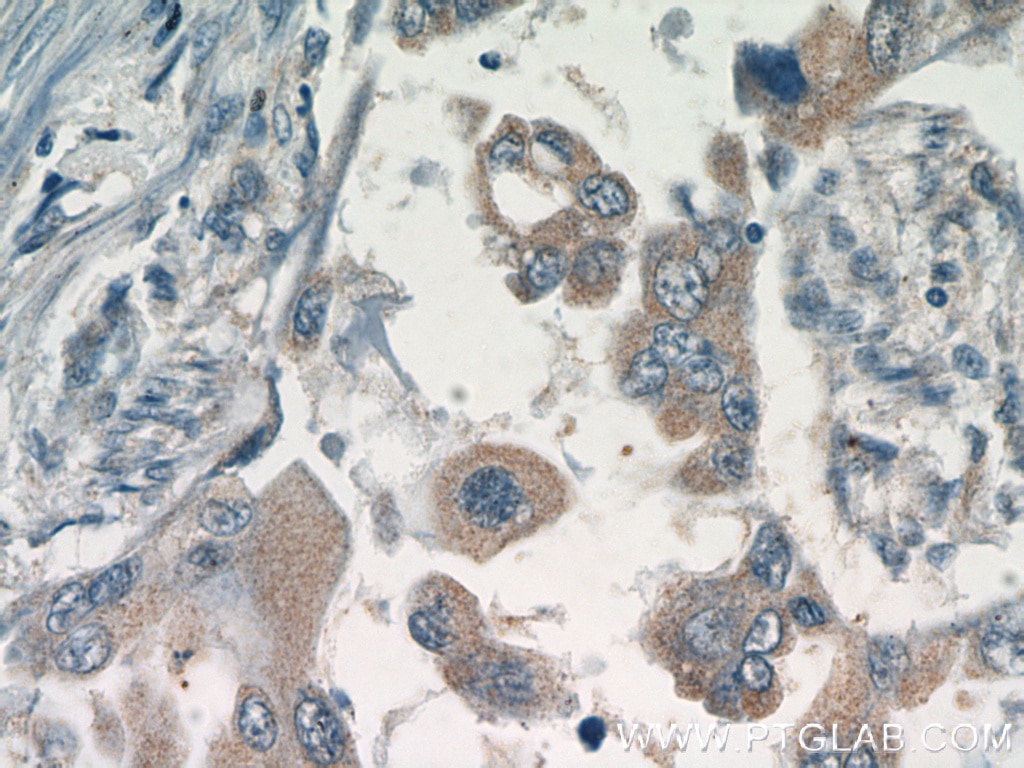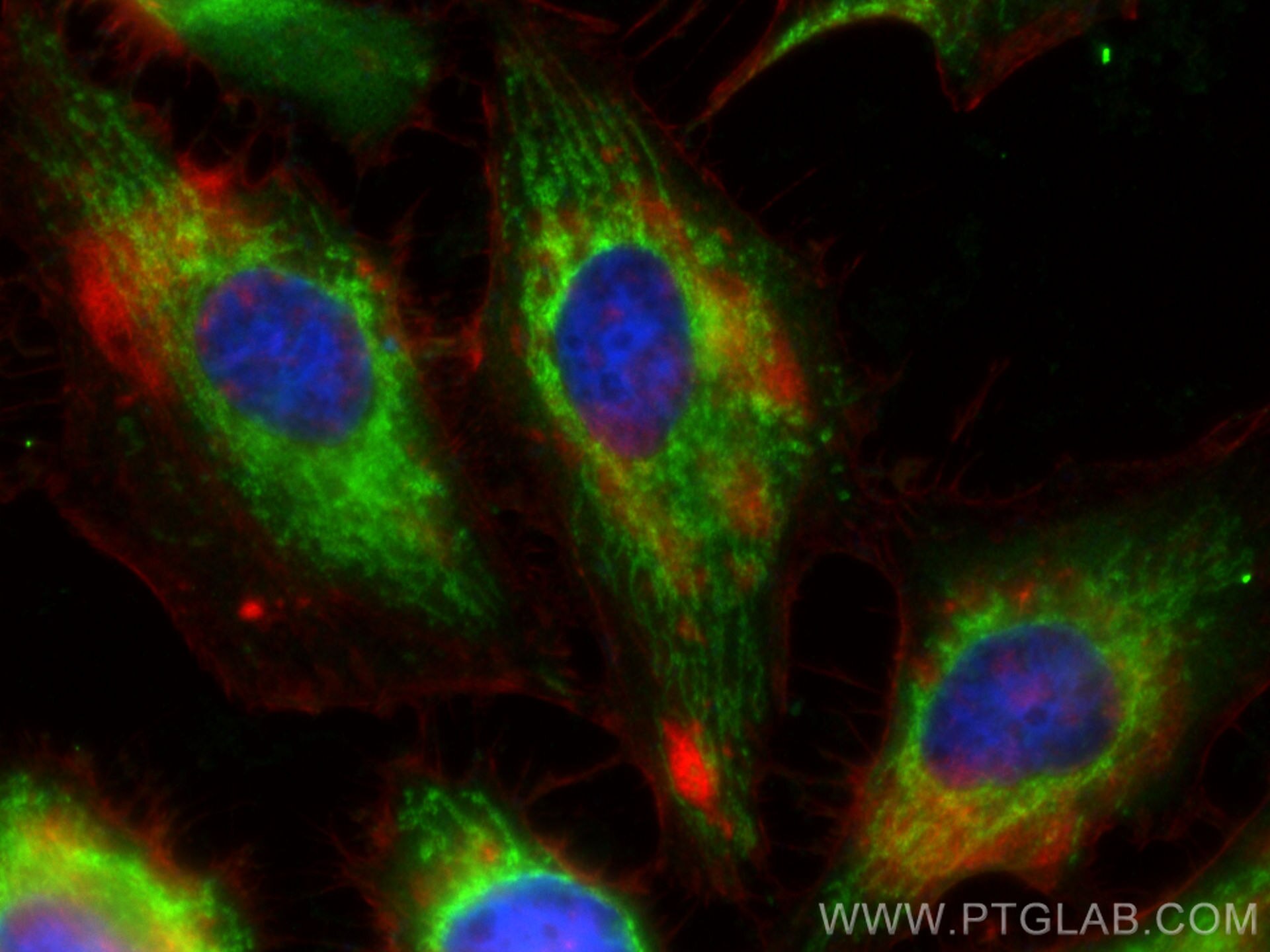Anticorps Polyclonal de lapin anti-GSK3A
GSK3A Polyclonal Antibody for WB, IHC, IF/ICC, ELISA
Hôte / Isotype
Lapin / IgG
Réactivité testée
Humain, rat, souris
Applications
WB, IHC, IF/ICC, ELISA
Conjugaison
Non conjugué
N° de cat : 13419-1-AP
Synonymes
Galerie de données de validation
Applications testées
| Résultats positifs en WB | cellules HeLa, cellules MCF-7, cellules PC-3, plasma humain, tissu hépatique de souris |
| Résultats positifs en IHC | tissu de cancer de la prostate humain, tissu de cancer du poumon humain, tissu de tumeur ovarienne humain il est suggéré de démasquer l'antigène avec un tampon de TE buffer pH 9.0; (*) À défaut, 'le démasquage de l'antigène peut être 'effectué avec un tampon citrate pH 6,0. |
| Résultats positifs en IF/ICC | cellules HeLa, |
Dilution recommandée
| Application | Dilution |
|---|---|
| Western Blot (WB) | WB : 1:2000-1:10000 |
| Immunohistochimie (IHC) | IHC : 1:50-1:500 |
| Immunofluorescence (IF)/ICC | IF/ICC : 1:200-1:800 |
| It is recommended that this reagent should be titrated in each testing system to obtain optimal results. | |
| Sample-dependent, check data in validation data gallery | |
Applications publiées
| WB | See 6 publications below |
Informations sur le produit
13419-1-AP cible GSK3A dans les applications de WB, IHC, IF/ICC, ELISA et montre une réactivité avec des échantillons Humain, rat, souris
| Réactivité | Humain, rat, souris |
| Réactivité citée | Humain, souris |
| Hôte / Isotype | Lapin / IgG |
| Clonalité | Polyclonal |
| Type | Anticorps |
| Immunogène | GSK3A Protéine recombinante Ag4168 |
| Nom complet | glycogen synthase kinase 3 alpha |
| Masse moléculaire calculée | 483 aa, 51 kDa |
| Poids moléculaire observé | 51 kDa |
| Numéro d’acquisition GenBank | BC027984 |
| Symbole du gène | GSK3A |
| Identification du gène (NCBI) | 2931 |
| Conjugaison | Non conjugué |
| Forme | Liquide |
| Méthode de purification | Purification par affinité contre l'antigène |
| Tampon de stockage | PBS with 0.02% sodium azide and 50% glycerol |
| Conditions de stockage | Stocker à -20°C. Stable pendant un an après l'expédition. L'aliquotage n'est pas nécessaire pour le stockage à -20oC Les 20ul contiennent 0,1% de BSA. |
Informations générales
Glycogen synthase kinase-3 alpha (GSKA) is one of the two functional isoforms encoded by the GSK gene and
acts as a tumor suppressor through its kinase function, targeting many different proteins.
What is the molecular weight of GSKA?
51 kDa. GSKA is a protein serine kinase composed of 483 amino acids and the catalytic domain shares a high
degree of homology with GSKB, although they are encoded on separate genes.
What is the function of GSKA?
Constitutively expressed across all tissues, GSKA has a large number of target proteins and is therefore involved
in many different pathways (PMID: 19923896). It was first identified as a regulator of glycogen metabolism, as
GSK3A phosphorylates the enzyme glycogen synthase, thereby inhibiting glycogenesis, the conversion of glucose
into glycogen (PMID: 6249596). It has since been shown to interact with many other proteins and is one of the
kinases with most substrates in the cell, with roles in cell cycle progression, proliferation, differentiation, and
apoptosis (PMID: 17570479; PMID: 11563964). Typically, GSKA negatively regulates its downstream substrates,
often tagging proteins for ubiquitination. It has important roles in the Wnt and PI3K signaling pathways.
What is the role of GSK3A in neurodegenerative disease?
GSK3A is known to interact with beta-amyloid and tau, proteins that aggregate in areas of the neuronal system
as part of the pathology of neurodegenerative diseases such as Alzheimer's disease. It has been shown that
GSK3A causes abnormal phosphorylation of the microtubule-binding protein tau in a way that reflects the
pathology of Alzheimer's disease (PMID: 1334849; PMID: 1336152). GSKA has also been shown to process
amyloid precursor protein to beta-amyloid, another protein that forms the inclusion bodies, or Lewy bodies,
that are one of the hallmarks in Alzheimer's (PMID: 1276154). Another protein involved in the pathology of
Alzheimer's is α-synuclein, which is known to be a substrate for GSK-3β phosphorylation (PMID: 24681994).
Protocole
| Product Specific Protocols | |
|---|---|
| WB protocol for GSK3A antibody 13419-1-AP | Download protocol |
| IHC protocol for GSK3A antibody 13419-1-AP | Download protocol |
| IF protocol for GSK3A antibody 13419-1-AP | Download protocol |
| Standard Protocols | |
|---|---|
| Click here to view our Standard Protocols |
Publications
| Species | Application | Title |
|---|---|---|
Neuropsychopharmacology Upregulation of GSK3β Contributes to Brain Disorders in Elderly REGγ-knockout Mice. | ||
Front Cell Dev Biol A GSK3-SRF Axis Mediates Angiotensin II Induced Endothelin Transcription in Vascular Endothelial Cells. | ||
iScience MYCT1 alters the glycogen shunt by regulating selective translation of RACK1-mediated enzymes. | ||
Pathol Oncol Res Knockdown of Sox2 Inhibits OS Cells Invasion and Migration via Modulating Wnt/β-Catenin Signaling Pathway. | ||
World J Diabetes Exploring the targets and molecular mechanism of glycyrrhetinic acid against diabetic nephropathy based on network pharmacology and molecular docking |
